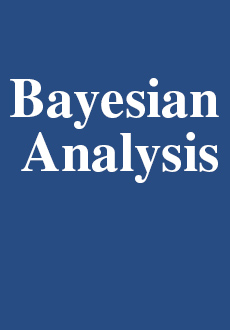Abstract
The power-expected-posterior (PEP) prior provides an objective, automatic, consistent and parsimonious model selection procedure. At the same time it resolves the conceptual and computational problems due to the use of imaginary data. Namely, (i) it dispenses with the need to select and average across all possible minimal imaginary samples, and (ii) it diminishes the effect that the imaginary data have upon the posterior distribution. These attributes allow for large sample approximations, when needed, in order to reduce the computational burden under more complex models. In this work we generalize the applicability of the PEP methodology, focusing on the framework of generalized linear models (GLMs), by introducing two new PEP definitions which are in effect applicable to any general model setting. Hyper-prior extensions for the power parameter that regulates the contribution of the imaginary data are introduced. We further study the validity of the predictive matching and of the model selection consistency, providing analytical proofs for the former and empirical evidence supporting the latter. For estimation of posterior model and inclusion probabilities we introduce a tuning-free Gibbs-based variable selection sampler. Several simulation scenarios and one real life example are considered in order to evaluate the performance of the proposed methods compared to other commonly used approaches based on mixtures of -priors. Results indicate that the GLM-PEP priors are more effective in the identification of sparse and parsimonious model formulations.
Citation
Dimitris Fouskakis. Ioannis Ntzoufras. Konstantinos Perrakis. "Power-Expected-Posterior Priors for Generalized Linear Models." Bayesian Anal. 13 (3) 721 - 748, September 2018. https://doi.org/10.1214/17-BA1066
Information





